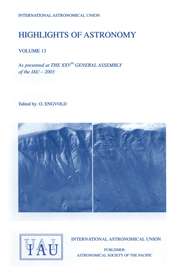Article contents
Extract
It is a qreat honour to pronounce this lecture before the General Assemhly of United astronomers of all the world.
In fact, the astronomers are really more united, than the representatives of manv other sciences. Perhaps this unity is connected with the noble spirit of inquiry into the immense distant worlds, characteristic for astronomers. And of all the problems and all the systems investigated the biagest one is surely the Universe as a whole i.e. the tonic of cosmoloay.
This branch of astronomy is the greatest challenge, one is always confronted with the danaer of being captured by prejudices.
In the last decades the situation chanaed. At least cosmology has transformed into a respectable science, which it was not say 50 or 60 years ago.
There remain deep unsolved questions beginning with the very existence and/or birth of the Universe.
But there are also in modern Cosmology definite successes, there are achievements in the understanding of the Universe. The successes are due to the work of many people, they are due to an international collective effort.
In a talk in the Odeon, an ancient theatre of Patrai, Greece and also in this high-light paper it seems me unappropriate to give precise citations and to divide priorities. Therefore no names will be called except a handful of great men gone of us - Einstein, Rubble, Friedmann, Jeans, Planck.
- Type
- Invited Discourses
- Information
- Copyright
- Copyright © Reidel 1983
- 3
- Cited by


